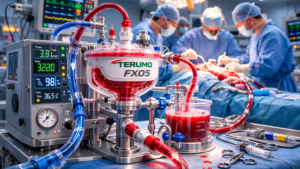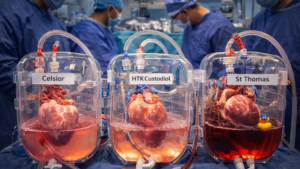Abstract
Background: This retrospective observational study aimed to examine whether clinical inflammatory parameters were associated with the requirement dosage of unfractionated heparin (UFH) to maintain the range of ACT in veno-arterial extracorporeal membrane oxygenation (V-A ECMO) during lung transplantation surgery. Methods: Among all patients who underwent lung transplantation using V-A ECMO from January 2021 to May 2022, 27 patients were included. These patients were divided into two groups based on whether the infusion rate of UFH was increased from the initial infusion rate (7–8 units/kg/h) (increased group, n = 10) or the infusion rate was maintained or decreased (non-increased group, n = 17). The infusion rate was adjusted with an activated clotting time (ACT) target of 160–200 s. Results: At 1–2 h after starting ECMO, ACT was significantly lower (179.0 (166.5–188.5) versus 224.0 (193.0–242.0) sec, p = 0.006) and white blood cell (WBC) counts were higher in the increased group (12.6 ± 3.3 versus 9.5 ± 4.0 × 103/μL, p = 0.046). The UFH infusion rates were higher in the increased group during the surgery. The cutoff value of WBC count at 1–2 h after starting ECMO for discriminating the need for increasing the UFH dosage was determined as 10.2 × 103/μL (sensitivity 90.0%, specificity 58.8%, area under the curve 0.712) and discrimination of this cut-off value was confirmed as statistically significant (p = 0.018). Conclusion: These data suggested that WBC count was associated with the requirement of an increase in the UFH infusion rate of V-A ECMO during lung transplantation surgery. Further evaluation is necessary to clarify the role of WBC count in determining the optimal UFH dosage.
Keywords: Veno-arterial extracorporeal membrane oxygenation / Lung transplantation / Unfractionated heparin / White blood cell







